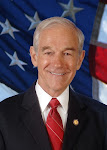By Pearse Lenz
Barack Obama’s all-inclusive message of “Change” and the dashing good looks that come with it have attracted millions of Americans as they face the challenging current political and economic climate. Available jobs are harder to find today than before the credit crisis of the summer of 2007. Food and energy prices are soaring, and giant corporations have collapsed. Even the New York Times has written about the attempts of the mega-wealthy to cut back on their purchases.
In addition to the present turmoil, President George W. Bush has not met the expectations the American public held prior to both his election victories, and opinion polls suggest that the nation, as a whole, feels dissatisfied with his performance. Times are dire and the nation needs a messiah: someone we can trust to support us through the unknown trials ahead and help us escape the awful reality America is experiencing.
According to the popular media, the only man worthy to take up the challenge is Barack Obama. The popular media’s disproportionate focus on Obama has turned him into a “celebrity” of sorts, according to the McCain campaign. Not to withdraw credit from the Obama campaign staff’s efforts (they have produced a brilliant campaign thus far), but most of the attention drawn to him comes from his charisma. It is an important aspect for every presidential candidate in any election to have, considering that many people will vote with their hearts and not according to a candidate’s policies. The charismatic candidate is an attractive one, however not necessarily the best.
History has shown that the ideal candidate with the “Presidential Look” has not always performed up to expectations. This is not to say that every personable presidential candidate that lacks experience will perform poorly, but instead the history of the Harding and Carter Administrations display vivid examples of how voting based on a candidate’s message and image are misleading.
A rather eclectic duo of Presidents, Harding and Carter shared a common trait, in that they “seemed” to be capable of steering the country on the right course, despite their lack of experience in government affairs, yet America instead showed their opinions of both presidents by not re-electing them for a second term.
Before Harding entered the Presidential race in 1920, the Republican Party believed that the gregarious Harding was the ideal candidate. The tall, dark, handsome U.S. Senator held an unremarkable and short legislative career (sound familiar?) before being elected. He promised to calm the chaos and redirect the nation following World War One, and instead brought about the Teapot Dome Scandal and died two years into his term. He has been ranked as being one of the least effective and worst Presidents in history.
Ever the philosopher, Jimmy Carter won the 1976 election on part of his ideals for a better America and providing rhetoric to assuage the pain that followed the Watergate Scandal. Carter entered the office with a disarming Southern charm and only four years of executive-level experience as Governor of Georgia. Past his response to the 1970’s energy crisis, Carter’s ideals did little to help America during the difficult times of that decade.
The economy experienced double-digit inflation, high-interest rates, and stagflation. Carter’s lack of experience in foreign affairs did little to improve the Iran Hostage Crisis, a national crisis that continued after the American public showed their disapproval for Carter, ousting him in the 1980 election.
Both Harding and Carter won their election with their rhetoric to “change” America following trying times for the American public (WW I for Harding, Watergate for Carter), and the public image of the two candidates helped propel them to the Oval Office. Despite these promises and messages and seemingly trustworthy image, Harding and Carter left America in arguably worse shape than when they entered.
The President bears the responsibility of the actions of the entire government and every employee and agent; hence, the chances that someone will make a serious mistake and put the nation in a challenging position are high. A President must have the confidence to take that responsibility of every mistake, a confidence that must be forged through victories and defeats performed on a large scale.
Unfortunately for Obama, a few victories in a Chicago neighborhood and the Illinois State Senate will not make the cut. Senator John McCain has sponsored 31 bills that the Senate has enacted in the fifteen years he has been Senator of Arizona, which is an extremely high number relative to his peers’ ability to pass their bills into law. To his credit, Obama has shown that he can also propose bills and see them through the entire legislative process- twice. Obama’s confidence seems almost undeserved when this fact comes to mind.
If further interested in learning about McCain’s or Obama’s Senate voting record or Bill Sponsorship, go to the Library of Congress website, http://thomas.loc.gov/. If interested in the effects of the Carter Administration, look at Iran.
Saturday, September 27, 2008
Subscribe to:
Post Comments (Atom)






No comments:
Post a Comment